BikePortland has received biographies of the 13 Portlanders, and their substitutes, who have been selected by council offices to sit on the Independent District Commission. As we reported earlier this week, the responsibility of the commission is to prepare and adopt a boundary plan for the four city council districts as stipulated by the city charter reform approved by voters last November.
The city received 279 applications which were scored on four criteria:
- Skills and knowledge to help commission work
- Commitment to advancing equity
- Ability to support community engagement efforts
- Connection to a variety of Portland’s communities
The city council will formalize the appointments on January 25th. Here are the nominees:
Amanda Manjarrez
“I think it’s critical that we create districts that honor the unique experiences and identities across our diverse communities. My sincere hope is that folks see themselves represented and feel a sense of belonging, possibility, and excitement about getting more involved as potential leaders and as voters in their new districts.”
Amanda brings creative leadership and a deep commitment to social justice to her work as Director of Public Policy and Government Affairs at Foundations for A Better Oregon. A longtime advocate for racial equity and good governance, she collaborates with Oregonians around the state to co-design, test and champion system change strategies that deliver lasting impact for children and families. Previously, Amanda served as the first Director of Advocacy for the Coalition of Communities of Color and Latino Network, where she supported the organization in establishing an Advocacy Department. She also served as Chief Strategist at the Center for Civic Policy in Albuquerque, NM where she engaged in redistricting efforts in 2010. A 2016 graduate of Lewis & Clark Law School, she is currently a member of the New Mexico State Bar with a practice focused on Election law and nonprofit advocacy.
Arlene Kimura
Hopefully, this will show the community members of East Portland that the City is really interested in hearing their voice and take heed on their concerns and bring some positive developments.”
Arlene Kimura was born and raised in Hawaii and lived Europe and San Francisco before making Portland her home in 1978. She is a long-time advocate for East Portland community members. Arlene has been involved with many City of Portland processes, including the East Portland Action Plan and on the budget advisory committees for City of Portland’s Office of Civic Life, Parks and Recreation, Bureau of Transportation, and Prosper Portland. She is currently the board president of the Hazelwood Neighborhood Association, the treasurer of the East Portland Neighbors, and a member on the Multnomah County Midland/Gregory Height Libraries remodel task force as well as Tri-Met’s Hazelwood Public Safety Project. In her free time, Arlene enjoys exploring different textile expressions, cuisines, gardening, natural areas, music, reading and traveling.
David Michael Siegel
“I hope to help accomplish what the city has been discussing for over three decades – how to more effectively and inclusively represent the diverse citizenry of Portland, and how to more efficiently manage the organizational infrastructure required to run and serve a city of Portland’s size.”
David Siegel, FAICP, retired after 42-years as a planner for a broad array of cities, counties and consulting firms, serving many years as a professional planner and manager for cities with city managers and ward-based city councils. He worked for Portland’s Office of Transportation under Earl Blumenauer, and as a project consultant to the City. David was a municipal planning commissioner and served as both President and Board member for the American Planning Association (the country’s professional organization for city planning professionals) and for Green Empowerment, a Portland- based international environmental nonprofit organization. He is committed to making Portland “the city that works” … only better. David and his wife raise and train puppies for Guide Dogs for the Blind, and he is a singer and guitarist for the local blues band, Big Plans.
DaWayne Judd
“I’m excited by the opportunity to create equity and representation to the diverse communities of Portland.”
DaWayne Judd was born and raised in Baltimore, Maryland, and received a BA in Sociology and Economics from Haverford College and an MBA in Business from University of Michigan before moving to Portland in 2015. He is a small business owner of B-More Management, LLC and has worked for Fortune 500 companies such as Columbia Sportswear, and Coldwater Creek. DaWayne serves as a board member for Black Executive Forum, Partners in Diversity, Alia Innovations and Family Service, and the Oregon Northwest Regional Education Service District. In his spare time, DaWayne enjoys dining on Ethiopian food at Enat’s, cognacs at Olive or Twist, catching up on community news at Champion’s Barber and visiting Broughton Beach with his Cane Corso named Zora Neale Hurston.”
Edie Van Ness
“I am so excited to see this new Portland and want to play a part in its success. If not me, then who? I do not deserve the right to question or challenge policies if I myself am unwilling to get involved and serve.”
Edie Van Nes is a third-generation Portlander and longtime criminal defense attorney, primarily representing court-appointed clients who overwhelmingly grew up in underserved communities. Since returning to Portland post-law school, she has been involved with many women’s causes, including founding the first and only multi-industry women’s business directory, Edie’s List (edieslist.com). Edie has been recognized by both the American Immigration Lawyers Association and the Oregon Criminal Defense Attorneys Association for her work. She welcomes different perspectives and enjoys working in a collaborative setting. Edie’s proudest title is wife and mother. Between June and September, you’re most likely to find Edie doing her most favorite activity, boating on the Columbia and Willamette Rivers.
Joshua Laurente
“This endeavor will only be successful if we are committed to engaging with Portlanders where they are, being in community with them, and lifting up their voices as we draw the political boundaries that will unite our city. If appointed, I believe we can execute a community-oriented and equity-focused blueprint for innovating democracy that other cities can look to as a successful model of transformative democratic change.”
Joshua Laurente is a Pacific Islander raised and rooted in the indigenous CHamoru islands of Guam and the Marianas, who are still resisting colonization by the United States. Josh has a master’s degree in policy advocacy and political development from Portland State University. He has spent the last year providing direct support and outreach with houseless Portlanders as a Rider Ambassador, a Portland Streetcar pilot program seeking to be a non-security alternative to supporting public safety on transit. Prior to that he was a state team member with US Senator Jeff Merkley, as well as an assistant supporting engagement at equity-focused firm Espousal Strategies. In his own time, Josh keeps a membership at the Circuit gym, volunteers with the Sunnyside Shower Project, and serves on the board of directors at Next Up, while also staying engaged in Guam’s youth-led decolonization movement.
Kari Chisholm
“I am enthusiastic about the historic opportunity to hear from Portland residents about how they want to represented on City Council, and to draw maps that maximize political competition and representation of our unique and diverse neighborhoods and communities.”
Kari Chisholm has lived in the city of Portland since 1997. Kari is the founder and president of Mandate Media, a Portland-based digital strategy and political consulting firm. Since 2001, Kari has advised over 300 candidates and elected officials in 32 states. He and his wife also own Cellar 503, an Oregon wine club and small business in Portland. In 2021 and 2022, Kari taught Digital Media Policy and Politics at the University of Chicago’s Harris School of Public Policy where he also serves on the bipartisan political digital working group that has proposed regulatory reforms in digital campaign practices. In 2001, Kari served on the citizens’ commission that advised the Metro Council on its post-Census 2000 redistricting effort.
Lamar Wise
“I’m excited to create an inclusive process and to engage community-based organizations.”
Lamar Wise began his life of advocacy working for the Oregon Student Association as their Legislative Director in 2015 and eventually become the Executive Director in 2017. During his time at OSA he focused fighting back tuition increases, increasing mental health services on campuses and empowering students to be involved in the electoral process. Lamar then transitioned to working for Oregon AFSCME as a Political Coordinator in 2019 where he has focused on fighting for economic justice to all working families. Since then, Lamar has been appointed to various boards including ACLU of Oregon, Community alliance of tenants action Fund, Our Oregon, Safety and Justice PAC board, and The Governor’s Racial Council. Through Lamar’s community involvement, he has fought for opportunities for Portlanders and Oregonians to have a voice in government decisions that will affect them.
Melody Valdini
“My goals would be to share my knowledge of how other cities and countries have drawn similar districts and to create the most fair and equitable districts for Portland.”
Melody E. Valdini is a professor in the political science department at Portland State University as well as the co-editor of the Journal of Women, Politics & Policy. Her research focuses on the consequences of institutional design, with a particular focus on electoral systems, political parties, and representation. She has published in the American Journal of Political Science, Political Research Quarterly, Electoral Studies, and Politics & Gender, and is the author of two books: The Character of Democracy: How Institutions Shape Politics (with Richard Clucas) and The Inclusion Calculation: Why Men Appropriate Women’s Representation (both published by Oxford University Press). In 2020, her most recent book, The Inclusion Calculation, was selected as the winner of the Victoria Schuck Award by the American Political Science Association, which recognizes the best book published on women and politics in the previous year. She has lived in Portland for sixteen years and spends her free time watching elections around the world, riding bikes with her husband and two daughters, and catering to two demanding cats.
Neisha Saxena
“The work of implementing the recommendations of the City of Portland Charter Commission is a critical opportunity to redesign City government toward achieving the goal of a multiracial democracy.”
Neisha Saxena (She/Her) serves as the Deputy Director and Civil Rights Administrator for the Multnomah Office of Diversity and Equity. Prior to this role, she worked in the Department of County Human Services where she managed the Anti-Poverty Initiatives Team dedicated to innovative approaches to dismantling the root causes of poverty and systemic racism. Prior to working at Multnomah County, Neisha lead a team at Home Forward and was a civil rights lawyer for 15 years, at Disability Rights Oregon and Legal Aid Services of Oregon, focusing on housing, employment, and public benefits law. She was a founding member of the Portland Fair Housing Advocacy Committee, the Portland Commission on Disabilities, and has served in leadership roles on the Oregon State Bar Affirmative Action Committee and Disability Law Section, the Home Forward 504 Board, the Oregon Council on Developmental Disabilities, the PPS Superintendent’s Advisory Committee on Enrollment and Transfer and Districtwide Boundary Advisory Committee, among many other boards and commissions. Neisha is a native of Chicago, raised in a South Asian immigrant family. She has a JD from Georgetown University Law Center and a BA, magna cum laude, from Wellesley College.
Paul Lumley
“I am excited about ensuring a fair process is implemented to create the 4 new districts, as well as ensuring a transparent and inclusive process.”
Paul Lumley has resided in Portland for 30 years and is the Chief Executive Officer for the Native American Youth and Family Center (NAYA) and a citizen of the Yakama Nation. He came to NAYA in 2016 after being the Executive Director of the Columbia River Inter-Tribal Fish Commission (CRITFC) since 2009. Mr. Lumley served as Executive Director of the National American Indian Housing Council in Washington DC from 2007 to 2009. While also in DC, Paul served as the Senior Tribal Liaison for the U.S. Department of Defense from 2004-2007. Paul has served as the Chair of the Coalition of Communities of Color and continues to collaborate with community-based organizations. Paul has a wide-ranging background on issues that directly impact American Indians, Alaska Natives, and Native Hawaiians. He has worked directly with tribal governments, tribal consortia, virtually all federal agencies impacting Indian country, and Native American national and regional organizations throughout his professional career. Experience areas include education, housing, social services, tribal treaty rights, and environmental protection and restoration. In his spare time, Paul loves to hike and make pies.
Sharon VanSickle-Robbins
“As a native Portlander who loves this City, I believe the work of this advisory body to address longstanding challenges with our model of government and to provide equitable representation across the entire community is long overdue. I believe this work will be transformative.”
Sharon VanSickle-Robbins is a lifelong Portlander and is passionate about ensuring that the diversity of our community is reflected in the leadership of the organizations she works with and that their missions are inclusive. Sharon earned a B.A. in marketing and journalism from the University of Portland. She began her career working at Willamette Week, and then in public relations for Tektronix. In 1983, she cofounded KVO Advertising and Public Relations and helped lead the firm for 20 years. In 2000, they sold KVO to Fleishman-Hillard International Communications (FH), one of the world’s largest public relations agencies. Sharon led the FH offices in Portland and Seattle. She now devotes her energy and experience to supporting a range of community organizations including, the International Women’s Forum/Oregon, City Club of Portland, Planned Parenthood Columbia Willamette and Planned Parenthood Advocates of Oregon, Self Enhancement, Inc., Thomas Edison High School, the Scappoose School District, Sauvie Island School, Portland metropolitan area’s Regional Arts & Culture Council, and the Oregon Entrepreneurs Forum.
Steve Fleischman
“We live in a time where so many forces political, technological, economic, and cultural tear us apart and encourage us to be self-interested. The new form of government we have chosen in this part election offers an opportunity to build anew on a vision of democracy that values and includes all. I’d like to play a small part in implementing that vision well.”
Steve Fleishman has been an owner/operator of several businesses, including his current consulting practice at Change Dynamics, LLC, a middle and high school social studies teacher, director of an international civic education project that worked in more than two-dozen countries in Africa, Asia, Central America, and Eastern Europe, and an executive in three education nonprofits–including as CEO of Portland-based Education Northwest. Steve serves on the boards of the City Club of Portland and NWEA. As a child of immigrant parents to the U.S. and Latin America, whose first language is Spanish, and who moved to this country in the fourth grade, Steve has personal insight into the challenges faced by individuals who are not members of a dominant group or culture, and who seek to be affirmed by and included in democratic processes. Coming from a different society, he learned about American society and culture as an outsider and has developed a deep attachment to democracy and social justice. Steve believes that the new Portland form of government is a unique and exciting experiment to help perfect local democracy by being more inclusive and more representative of the views and aspirations of all of our citizens.
Alternates member nominees are: Marta Hanson, Ransom Green III, and Sohrab Vossoughi. The reserve alternate member nominees are Brian Wilson, Sarah Thompson, and Weston Koyama.



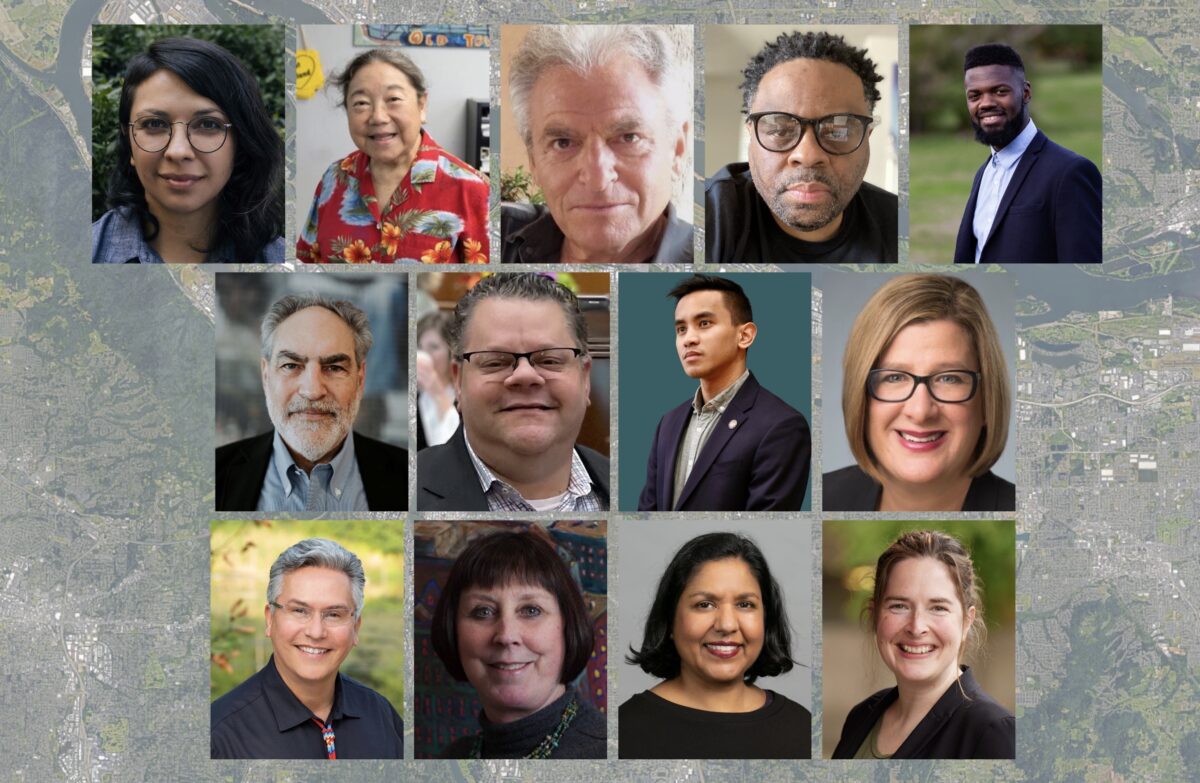
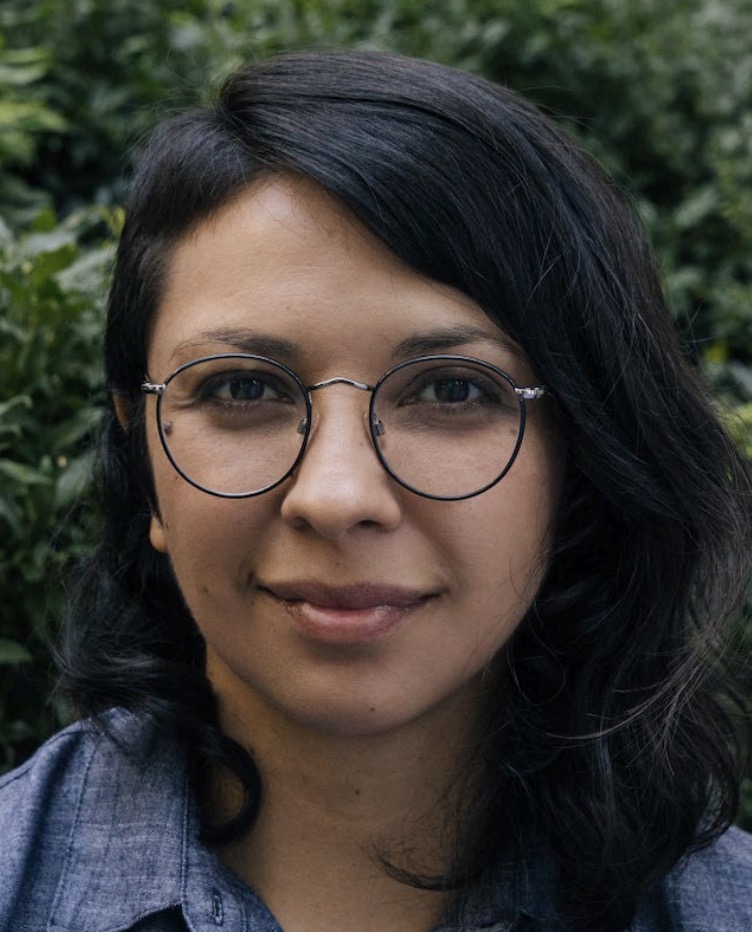
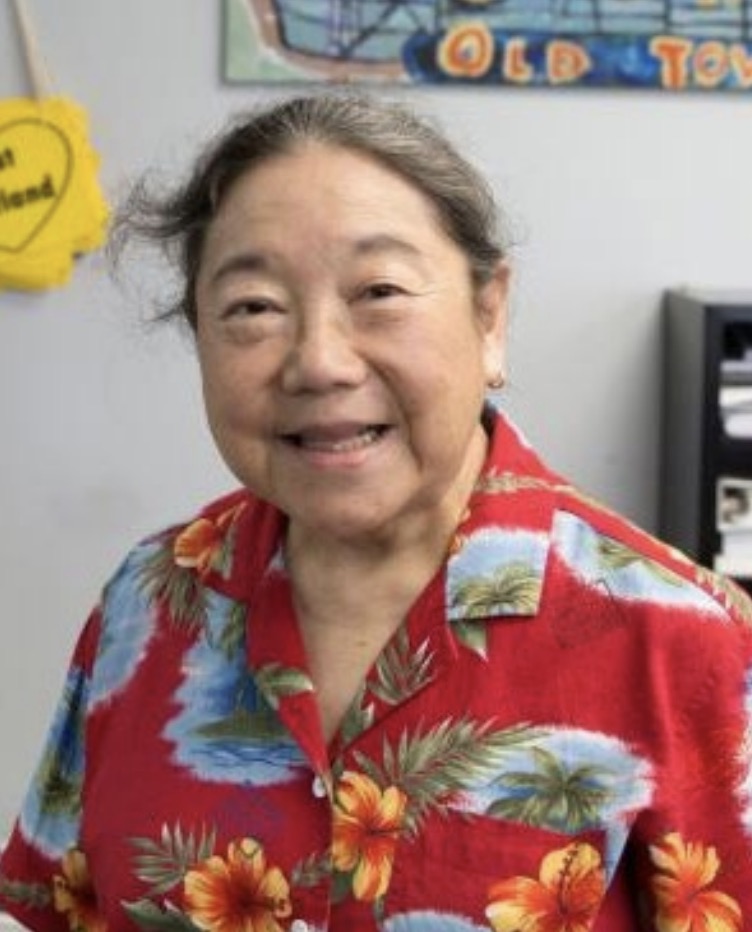
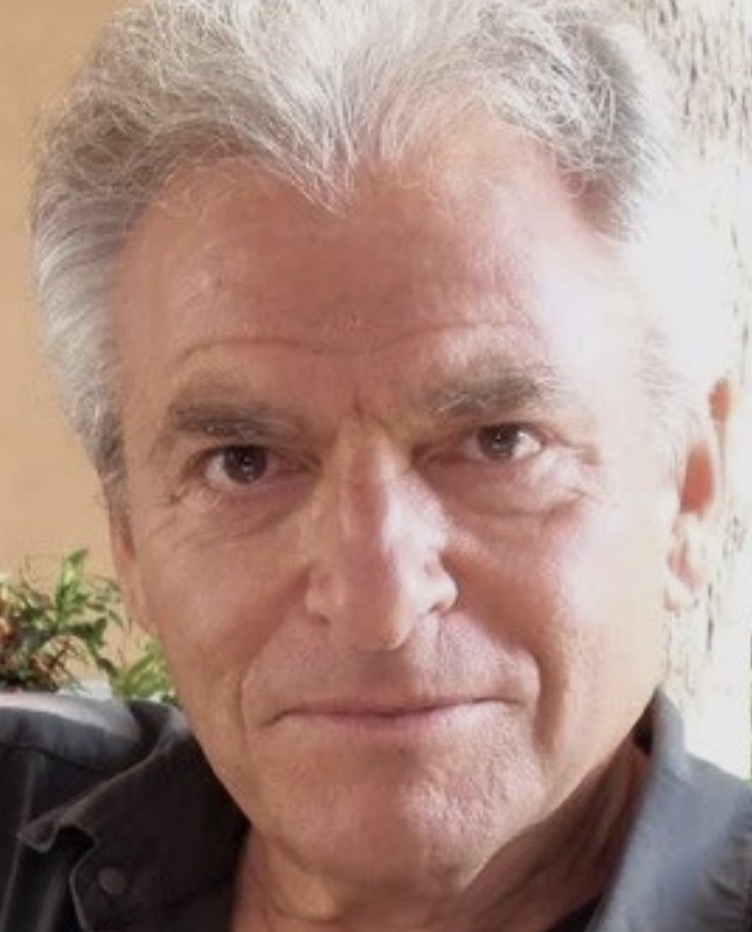

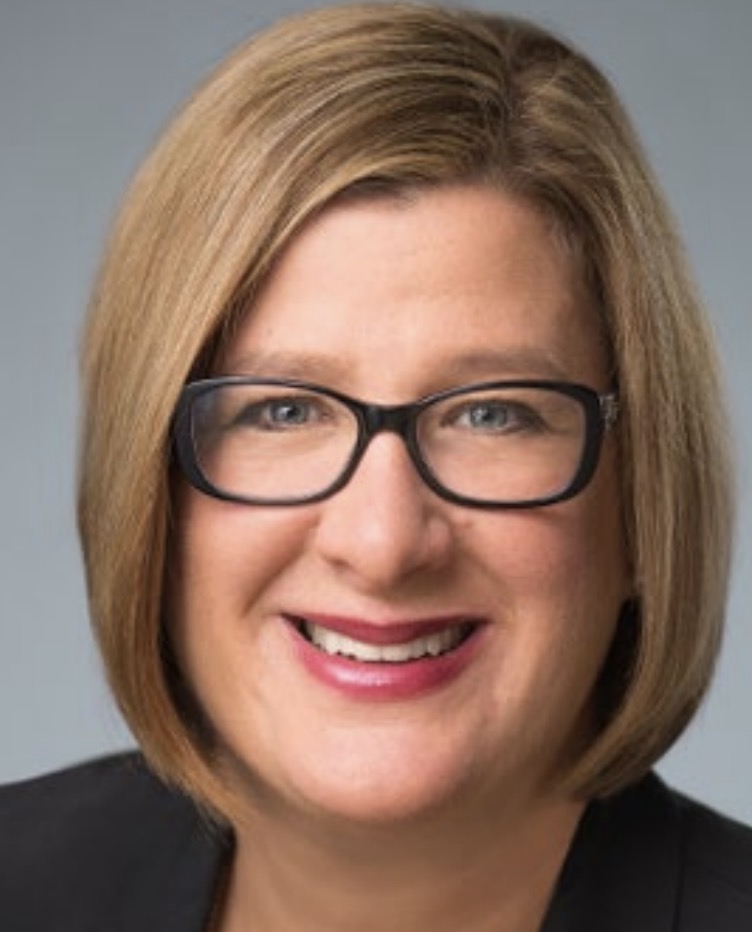

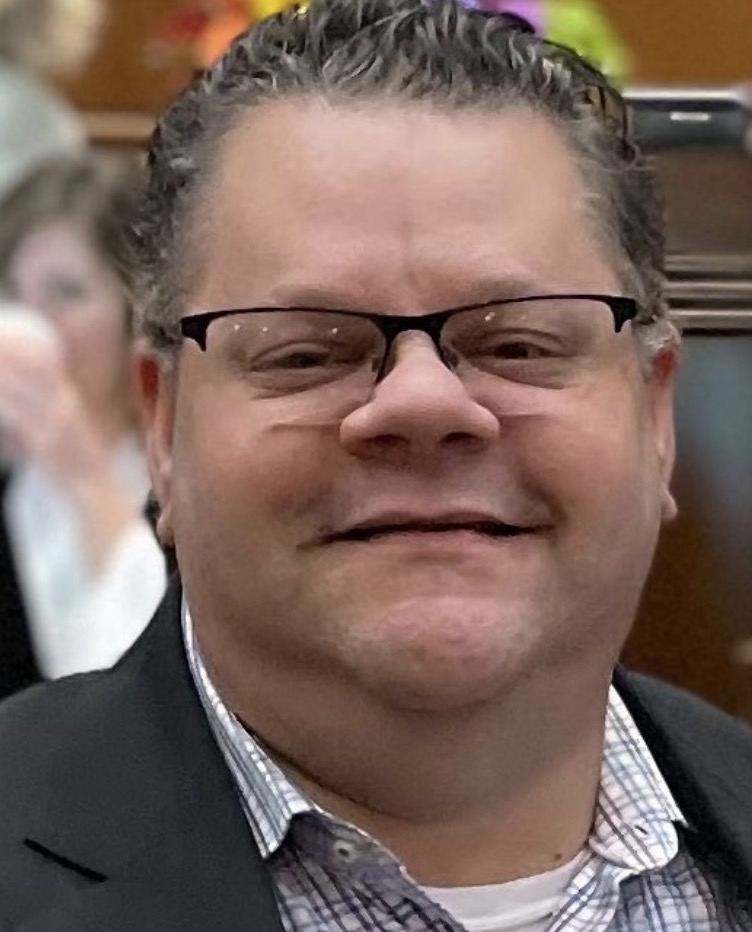
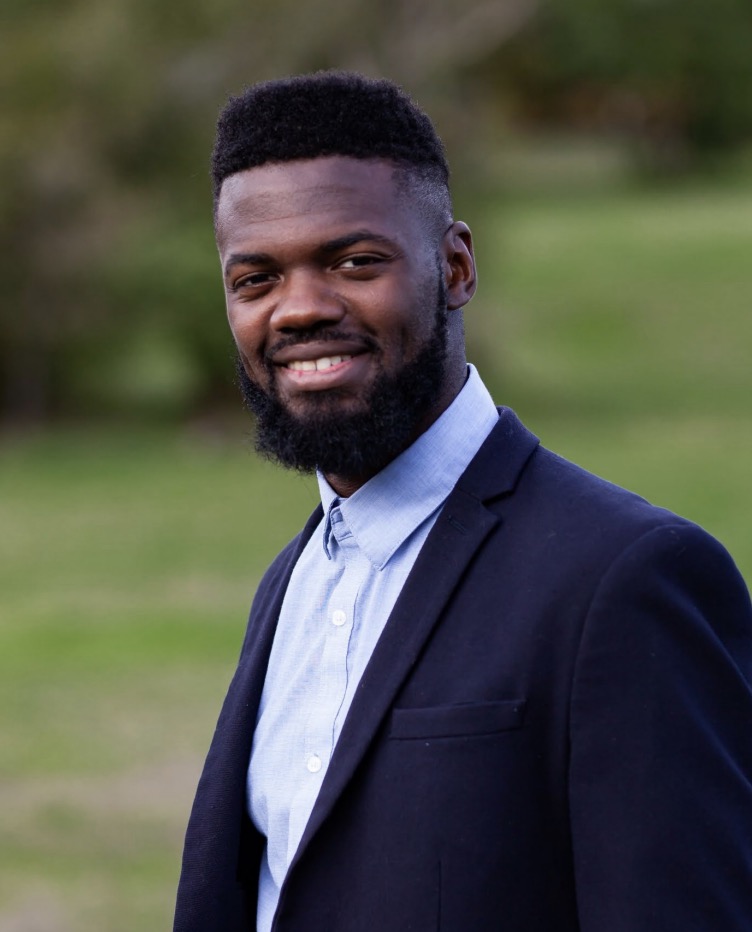
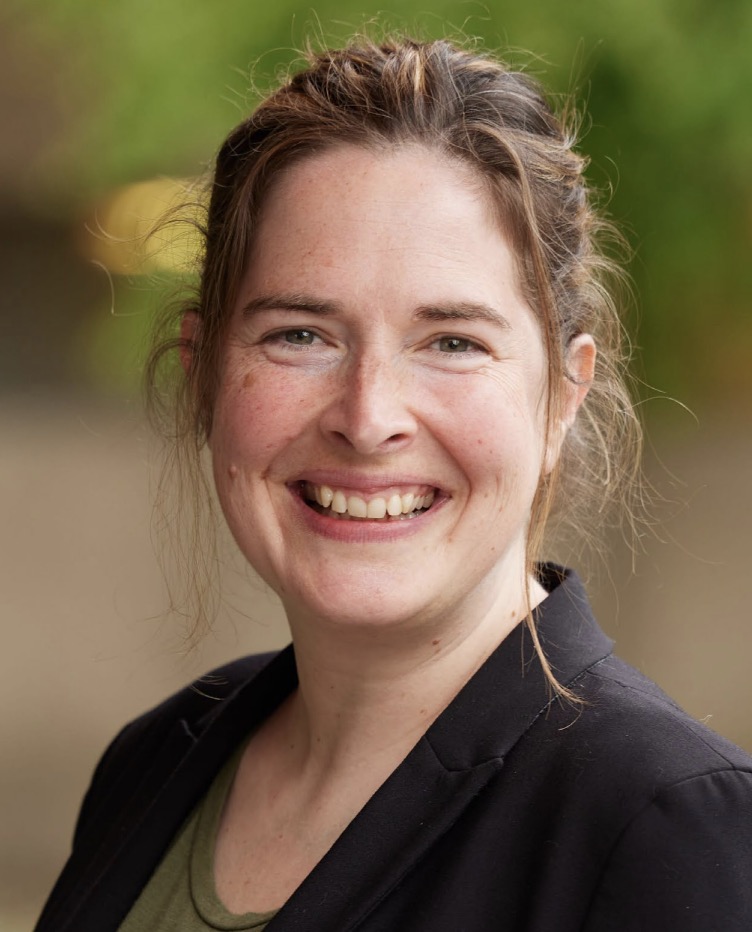
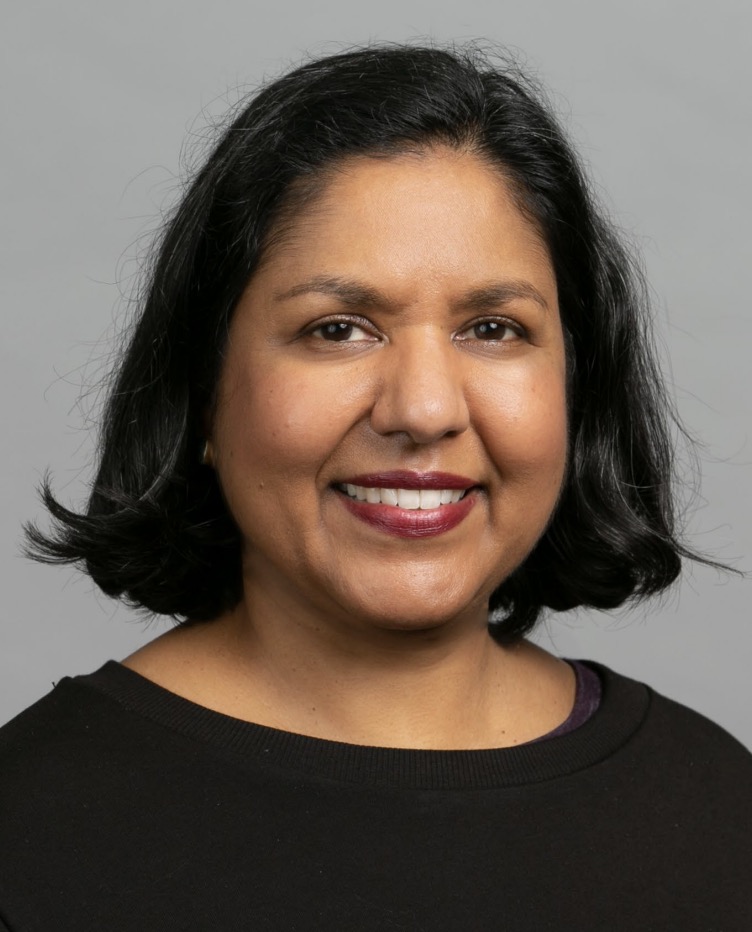
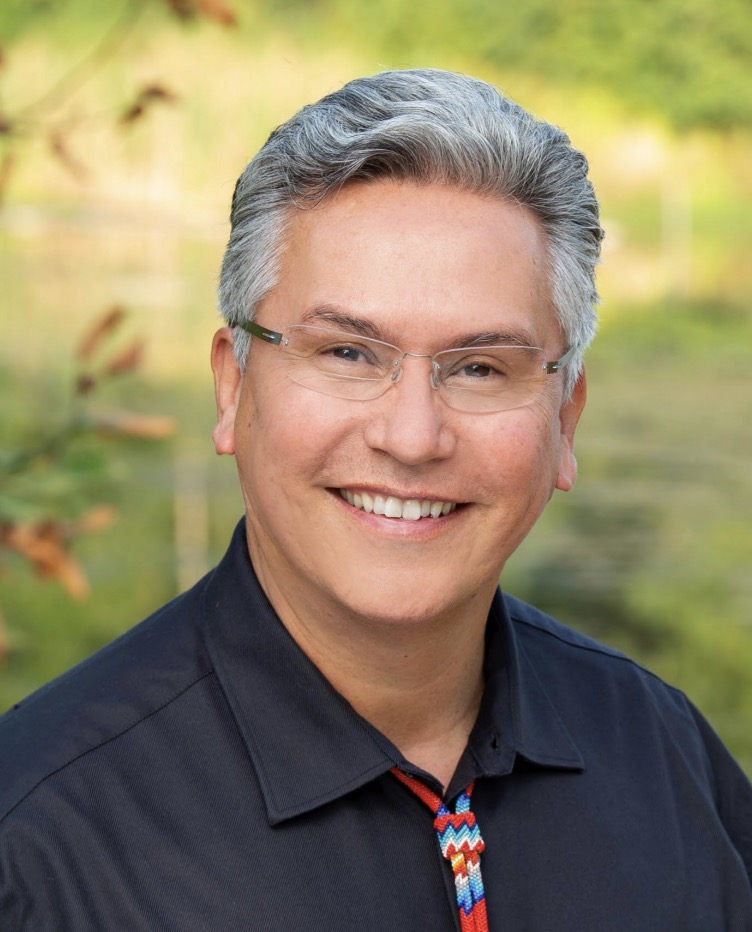
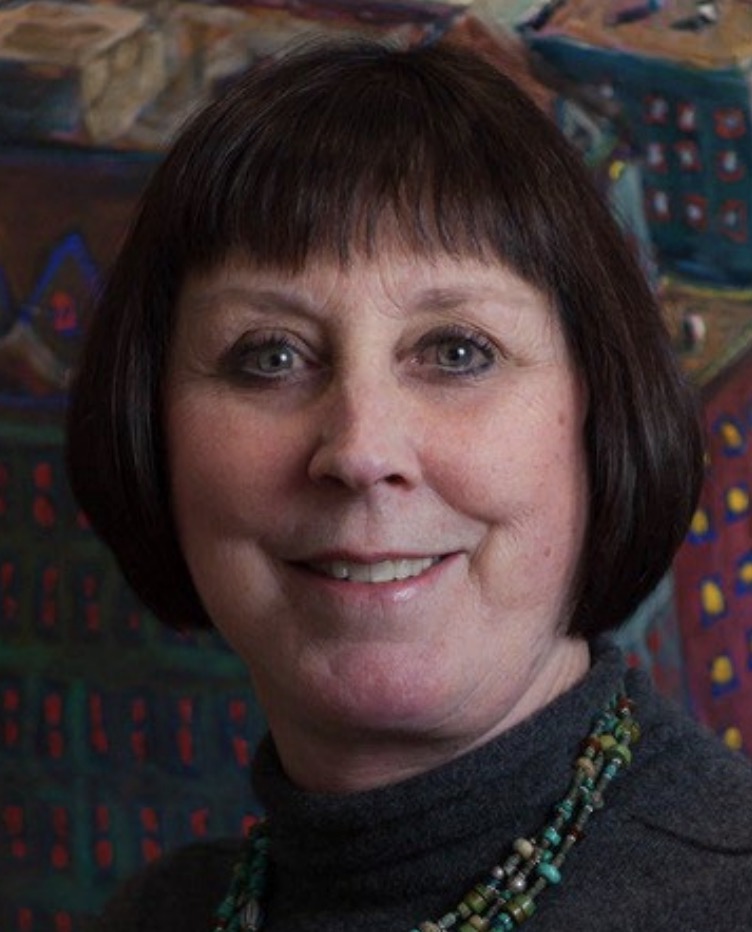

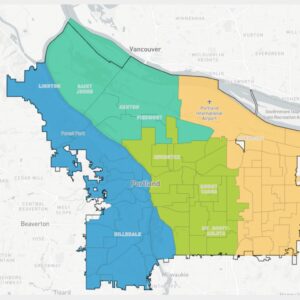
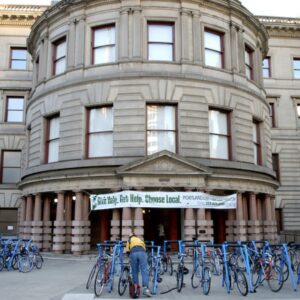

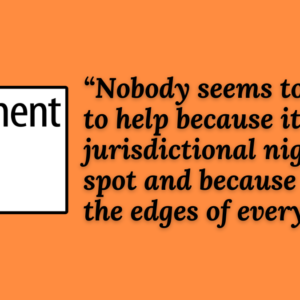
Thanks for reading.
BikePortland has served this community with independent community journalism since 2005. We rely on subscriptions from readers like you to survive. Your financial support is vital in keeping this valuable resource alive and well.
Please subscribe today to strengthen and expand our work.
I thought this was a bike blog?
Yes, stay tuned, BP is going to interview all of them about their bike cred.
It’s not like we’re warming up old Oregonian articles. As far as I can tell this news is exclusive to BP.
We can limit ourselves to covering debris in bike lanes, crashes and new infrastructure. But I’m a curious person and I feel compelled to understand why things are the way they are, and the reasons often lead back to policy and government.
I think charter reform is the most important local story of the past couple of decades. How city government is structured very much affects your biking experience.
Plus, every story published passes through a “tell me why this is important to a BikePortland reader” filter named JM.
Thanks for compiling these bios, Lisa! When I saw your post yesterday, I shared it with a few of my immediate family members and neighbors who live in the metro region. Given that BP got the jump on our other local news channels, I sincerely hope other journalists give BP credit if they reference or use your content.
How city government is structured very much affects your biking [ ]…
I agree, but I’d like to add “and pedestrian and public transit experiences” as well. I assume this was implied since BP has been at the forefront of reporting on active and public transportation in our region for many years.
At the risk of taking your story off-topic, I’m going to recycle the following comment I made to you on Jan 4: “Since I no longer cycle, am I part of the BP community? Are all active and public transportation people members of the community? What about those who use e-[name here] vehicles? I recognize Jonathan probably has too much invested in the “Bike” Portland brand to pivot now.”
Not only is BP often the first to report on government, land use, or transportation news that affects our city, including bicyclists and pedestrians, often they provide the most in-depth reporting, and sometimes the only reporting on an important issue.
BP often has in depth coverage of government and land use but through the narrow lens of pro-gentrification urbanism.
Yes I agree because it’s called having a niche topic area. We try to put everything through a lens of transportation/biking/urbanism and intersecting fields and topics.
And thanks for your opinion that somehow our coverage is “pro-gentrification.” I disagree with that, but you’re entitled to your opinion.
In my opinion BikePortland ceased being about cycling sometime around 2020. It now serves as a political advocacy outlet for the Street Trust and other “progressive” groups working against representative democracy.
Reporting on charter reform and better representation in city council being a prime example of working against representative democracy?
Whoa. That’s a seriously strong committee. Depth and breadth!
Thanks for the update of what Bicycle Advocates are doing across all sectors. Great choices. Most Bicycling advocates supported this change from the beginning.
I’m just unclear why we are moving to change the committee make up of some planning committees before hammering out the charter commission power of decision making.
Until then I would suggest everybody review City Boundaries. IMHO we have hit peak capacity of land use density argument when we have city boundaries that gerrymander around properties for tax purposes. Maybe we should split of the Oregon Land Use and Planning Commission before getting legislature input. How would that go down? FLaMES.
We have some serious issues with spatial efficiency and land use density arguments if we have gerrymandered city boundary lines. I’d like the legislature seriously look at that. Our city boundaries are no longer based on land transport efficiencies, it’s now about avoiding taxes. Can we pls make available large swaths of UGB land for development. A massive increase of land available for development will lower all housing costs across the board.
We aren’t anywhere near using the pre-existing developed land within the city efficiently, and we certainly don’t need to expand the UGB.
FYI D. Siegel made a lot of money on the freeway industrial complex at PMX where they tokenized POC and pilfered the ESOP profits and recommended years of no EIS. There’s a lot of people making money off the I5RQ conflict.
So, a carefully sculpted resume? Guide dog puppies, not that there’s anything wrong with that.
Thanks, Roberta.
The Rose Quarter freeway widening process is still bumping along. State and local government throws it a few tens of millions of dollars every so often because the big dog has gotta eat.
Imagine what could have been accomplished if the activists opposing the I5 Rose Quarter project had focused on real issues that communities face instead of pursuing their tone-deaf and wildly uniformed “never cede an inch!” strategy draped in triggering language about historic racism and climate change doomerism.
Thanks Lisa! I think it’s always good to know who is trusted with making the important decisions that will definitely impact our city government and by extension cycling, street safety, and infrastructure spending